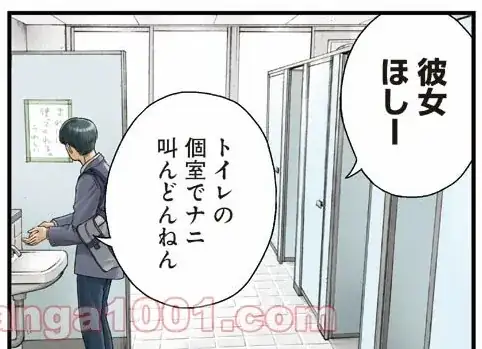I have trouble understanding 叫んどんねん in this panel. I thought it must be 叫んでおらない but I don't think it makes sense in this context.
Asked
Active
Viewed 530 times
2
-
3Related: https://japanese.stackexchange.com/questions/19799/%e3%81%ad%e3%82%93-in-the-kansai-dialect – Sep 21 '21 at 02:16
2 Answers
10
叫んどんねん is short for 叫んどるねん, which is short for 叫んでおるねん, which is 叫んでいるんだ(よ) said in Osaka-ben. There is no negation.
- おる is used instead of いる in many western dialects to denote progressive aspect. See: おる in honorific contexts and Existence verbs in the Kansai Dialect
- ておる/でおる very commonly contracts to とる/どる. See this chart.
/r/ + vowelbefore/n/can contract to ん (also in Tokyo colloquial speech). See: Why is the て-form being used before ん?
ねん is a Osaka-ben specific sentence-final particle which can replace んだ(よ)/のだ(よ).
naruto
- 285,549
- 12
- 305
- 582
3
The talker is saying "トイレの個室で何叫んでるんだよ" (Roughly means What the hell are you yelling about in the bathroom stall?) in Kansai dialect, not slur.
It can be divided like:
- トイレ | の | 個室 | で | 何 | 叫んどん | ねん
- トイレ | の | 個室 | で | 何 | 叫んでるん | だよ
Skye-AT
- 1,972
- 1
- 2
- 16
